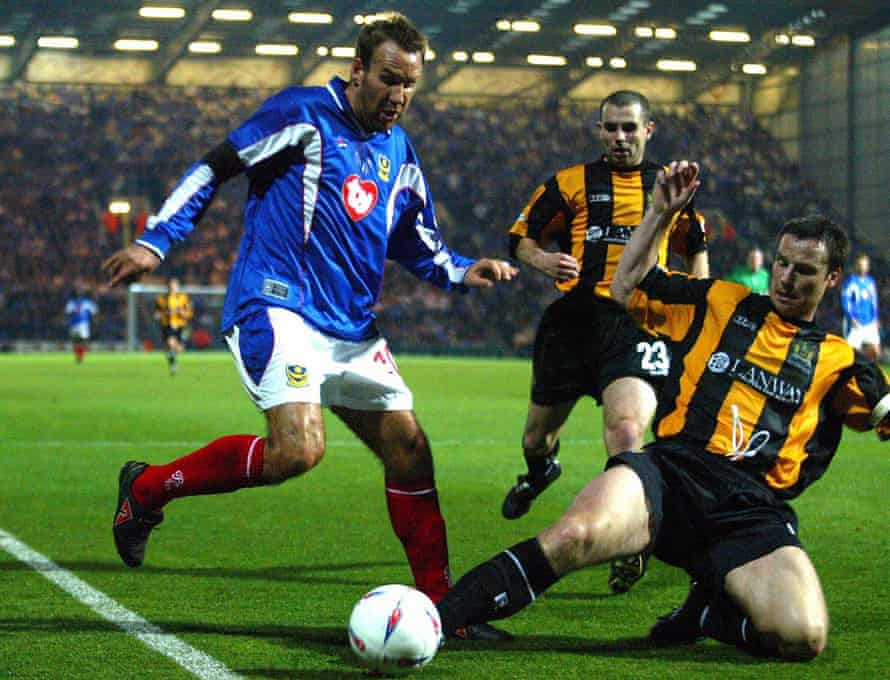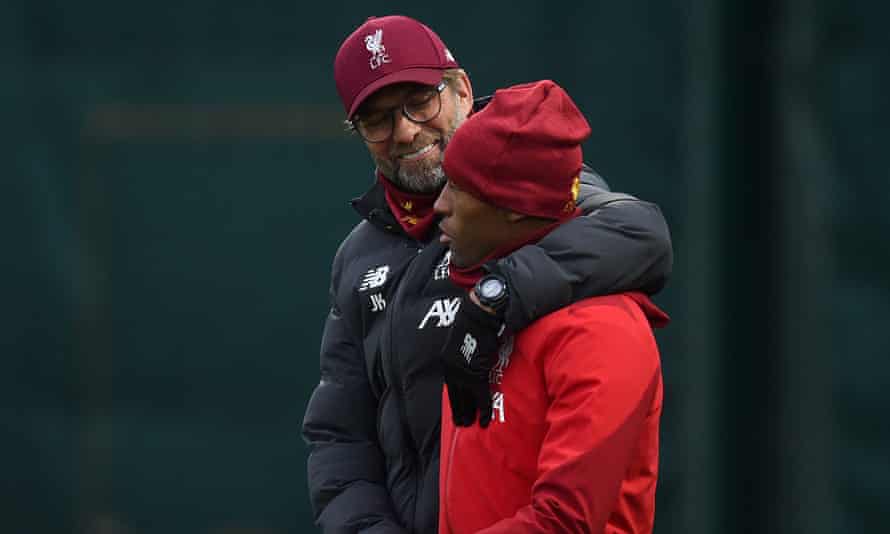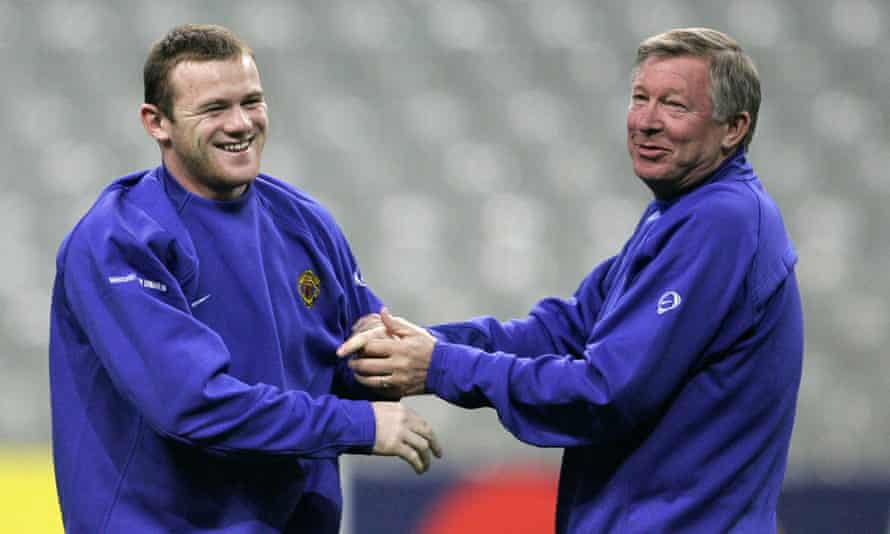What is the secret to man-management in football?
Managers devise training sessions, draw up complex tactical plans, manage multimillion-pound budgets, field challenging questions from the world’s press, shoulder the pressure of the club’s fanbase – and yet, when it comes to managing human beings, some of them struggle. Why? Because relationships are complicated.
Players have distinct personalities, shaped by their unique upbringings, and they have egos and entourages. The best managers find the right balance between being tough on players and sensitive to their needs. “Dealing with different personalities is the hardest thing about management,” says the former Brighton manager Micky Adams, who led the club to successive promotions at the turn of the century.
“You’ve got to find out what makes them tick. I see a lot of managers losing their jobs because they can’t forge those personal relationships. You have to understand the players’ feelings and frailties and show empathy, but also cajole and demand the highest standards from them.
“When I played, it didn’t bother me if a manager got in my face and told me I was shit. My reaction would be: ‘I’ll prove you wrong and show you I’m not.’ That’s going out the game now because the modern player needs you to reinforce how good they are all the time. Whatever era you’re talking about, one thing hasn’t changed – you need the support of the characters that run the dressing room. Without them, you’re in trouble.”
The characters are often the leaders and match-winners. Managers use different techniques to galvanise their lieutenants. The arm around the shoulder was Harry Redknapp’s go-to approach. This makes sense to the layman. You energise the player with compliments and give them free rein off the pitch, just as long as they deliver on it. Paolo Di Canio, Rafael van der Vaart and Paul Merson were all maverick playmakers who benefited from this method.
During the 2002-03 season, Merson told Redknapp he needed to check into Tony Adams’ Sporting Chance clinic for his drinking and gambling issues, but instead he flew to Barbados on holiday. Merson thought he had got away with it until he ran into one of Redknapp’s best mates. Rather than punish his captain, the Portsmouth manager turned a blind eye. Merson scored 12 goals as the club won the league and earned promotion to the Premier League. “I came back, so tanned – it was January,” says Merson. “He just got on with it. He never said a word about it and told me two years later.”

Jürgen Klopp has cultivated an almost religious devotion from his players by forging very personal relationships. By being tactile and showing a genuine interest in their lives, he has built a trust and connection that has helped the team overcome crushing defeats in major finals and win the Champions League and Premier League.
Gini Wijnaldum, one of their key players in those successes, snubbed Tottenham in favour of Liverpool after chatting to Klopp. “I had great conversations with [Mauricio] Pochettino and Klopp,” he said in 2016. “But in the meeting with Jürgen, we had a laugh and did not speak only about football. He was interested in my personal life and that was good for me. He was not only interested in Wijnaldum the footballer, but Wijnaldum the person.
“When you’re not out on the football field, you have to communicate as people and it is good if you know something about how the other person is. It makes things easier. Every training session we do is to improve you as a player. That’s different to what I’ve experienced before and I’m really happy with it. The manager gives you confidence. He’s not a manager who yells at you or gets angry with you whenever you make a mistake. He will only get mad if you don’t do the things you are good at.”
Professor Sophia Jowett of Loughborough University has distilled this approach into a framework entitled the 3+1Cs: closeness, commitment, complementarity and co-orientation. Wijnaldum’s account outlines the sharing of personal details (closeness), challenging training sessions (commitment), a similar outlook on life (complementarity and co-orientation) and strong lines of communication. After speaking to a series of mentors and mentees, she found that these four elements create a “positive, effective and harmonious” relationship that can provide “a platform from which weaknesses and needs can be expressed, and goals and objectives can be achieved.”And, in theory, Klopp’s hugs do more than just suffocate their recipients. The “cuddle” or the “love” hormone oxytocin is released by the brain when people embrace one another or bond socially. When Klopp wraps his arms around a player, he is activating a feelgood hormone in the body.
This doesn’t work for everyone. When you examine Steven Gerrard’s achievements under Rafa Benítez – winning the FA Cup and Champions League, and being voted the players’ and writers’ footballer of the year – you could be forgiven for thinking they were close. In truth, they were anything but. Gerrard says Benítez’s “frostiness” brought the best out of him because he had “a hunger” to earn his praise.

“I can pick up the phone and speak to all of my previous Liverpool managers, except for Rafa,” Gerrard wrote in his autobiography. “It’s a shame because we shared the biggest night of our careers – the 2005 Champions League victory in Istanbul – yet there is no bond between us. On a basic human level, I prefer a likable manager, such as Gérard Houllier or Brendan Rodgers, but in terms of football I really don’t mind working with a colder man. An emotionless and distant relationship with the likes of Rafa Benítez and Fabio Capello can sometimes produce more success.”
Jon Stead experienced a similar approach from Mark Hughes when they worked together at Blackburn in the 2004-05 season. Stead made a flying start at Ewood Park, scoring six goals in 13 games under Graeme Souness. When Souness was replaced with Hughes, Stead suffered. “Mark Hughes wasn’t a nasty character, but I couldn’t read him,” recalls Stead.
“I need a manager who is open and honest. When I don’t know what they’re thinking or I can’t get direct answers, it plays on my mind and causes me problems.” Hughes had observed Alex Ferguson’s mind games first-hand in the dressing room but, if he was trying to provoke a reaction from Stead, it didn’t work. The striker scored only two goals in 36 appearances under the Welshman.
Ferguson had far more success rattling the cages of his most talented, robust players. He would direct dressing room rants at certain players to get a rise out of the rest of the team. “I always had a great relationship with the manager but there were times in most games at half-time where me and the manager were at each other,” says Wayne Rooney. “He knew, by doing that to me, he was getting a message to the other players. He did it with Giggsy as well. Always after the game, the manager might walk down to the bus and give me a slap on the back of the head. It was his way of saying: ‘That’s over.’”

Ex-Brighton boss Adams employed a similar technique to motivate centre-back Danny Cullip during their time together. “I used to address the team with my back to Danny and talk about defenders,” recalls Adams. “I’d say: ‘Listen boys, we’re gonna have to score four goals here to win this game because you can’t rely on these defenders.’ I’d insult him without being confrontational, but he used to digest that as me picking on him and it would really fire him up.”
Ignoring key members of the squad is one of many tactics used by José Mourinho. John Terry received mixed messages from the manager. Mourinho would lavish praise on his captain, making him feel “10 feet tall” but when Terry was injured the manager would blank him, provoking Terry to work harder so he could get back out on the pitch quicker.
“If you picked up a knock and missed a day’s training, he’d come in and wouldn’t speak to you. He’d walk straight past you on the treatment table,” said Terry. “You’re sitting there, captain of the football club, and you’re looking for a high-five with the gaffer – and you don’t get it, he blanks you. He says to the physio, while you’re there: ‘How long?’ And the physio will go: ‘A couple of days.’ And he’d just walk out. He provoked me and pressed my buttons.”
While the approaches of Benítez, Ferguson and Mourinho all differ, they are all designed with the same purpose, says sports psychologist Dan Abrahams. “They’re creating an environment of high challenge and high expectations,” explains Abrahams, who works with Premier League players and the England rugby union team.“By its nature, high challenge can create a culture of confrontation and that’s certainly the case when you look at parts of Mourinho’s career. They say to the squad: ‘Here’s the gameplan and my philosophy. You either do it or you don’t. If you don’t, you’re out.’ It’s a high-risk approach with today’s players – they can get exhausted by it after two or three years. It’s very difficult to be both high challenge and high support. The sweet spot is in between the two. Having worked with Eddie Jones and England rugby, I know he’s had to soften his approach to help him understand the individual needs of each human being.”
The talent within a squad plays a significant role in a manager’s success but, crucially, their ability to earn a player’s commitment unlocks the team’s potential. There’s no blueprint to creating the perfect bond. Each player-manager relationship needs a tailor-made plan and, even then, outside influences may sabotage the configuration.
To ensure long-lasting success, managers have to be flexible and adapt to changing attitudes in society, but this won’t necessarily guarantee long-lasting relationships. Given what’s at stake – three points, vast sums of money and personal reputations – clashes are inevitable. It’s not going to be all high-fives and trophy presentations. The intensity of these bonds can lead to burnout. In that sense they’re more like marriages than friendships: you might not always like each other but there needs to be an understanding and a commitment to a cause beyond a self-serving agenda.
However, as Adams explains, the best players are willing to enter this matrimony if you bring them success. “Don’t think everybody likes the manager, because that’s not how it works,” he says. “The players have to believe in you and that what you’re doing will get results. I must have got it right somewhere down the line because I had four promotions. Now, did they like me? I’m not sure they did. But I guarantee they respected me.”
Subscribe To Our Newsletter
-
How to get a free jersey
- How to get Pcs free jerseys Feedback Customer Reviews About Us Contact Us News FAQ
-
User Center
- Forget Password My Orders Tracking Order My Account Register
-
Payment & Shipping
- Customs & Taxes Locations We Ship To Shipping Methods Payment Methods
-
Company Policies
- Return Policy Privacy Policy Terms of Use Infringement Policy

